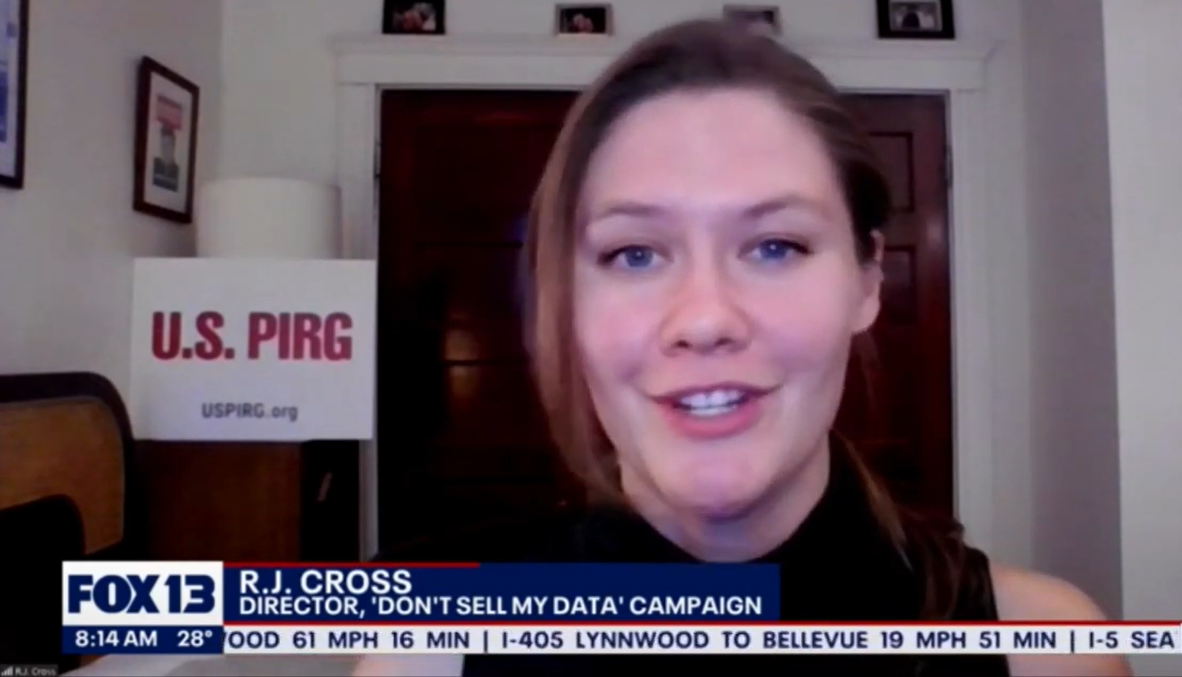
Will the Maryland Senate restore internet privacy protections?
As you may have heard, Congress recently rolled back consumer privacy protections for internet activity. With less than a week left in the legislative session, the Maryland Senate is considering a bill, SB1200, to restore those protections and protect Marylander consumers.
As you may have heard, Congress recently rolled back consumer privacy protections for internet activity. With less than a week left in the legislative session, the Maryland Senate is considering a bill, SB1200, to restore those protections and protect Marylander consumers.
The bill was introduced by Senator Rosapepe and cosponsored by Senators Lee, Astle, Benson, Conway, Currie, Feldman, Ferguson, Guzzone, Kagan, Kasemeyer, Kelley, King, Madaleno, Manno, Mathias, McFadden, Middleton, Muse, Nathan-Pulliam, Oaks, Peters, Pinsky, Ramirez, Robinson, Smith, Young, and Zucker.
The hearing in the Senate Finance Committee is today. You can read our testimony below.
April 6th, 2017
HB1200 – Internet Consumer Privacy Rights Act of 2017
Senate Finance Committee
Position: Support
We thank Senator Rosapape for introducing this important bill. We respectfully request a favorable report.
Most Americans use the internet on a daily basis to complete necessary tasks like online banking, job searching, homework, or to get directions. And while we browse the web, our Internet Service Provider (ISP) is collecting our browser information.
These ISPs — like Comcast, AT&T, Verizon and Time Warner – collect information about all our online desktop and mobile interactions. They know every click we make, including our search history, our app usage, our social security number, and even our geo-location. According to Gigi Sohn, who served as counselor to former Federal Communications Commission (FCC) chairman Tom Wheeler: “They know every website you visit, how long and during what hours of the day you visit websites, your location, and what device you are using.”
Once you are online, you can choose whether to join Facebook or use Google, but you need an ISP to get online. Because these firms were not seen as telecommunications or broadband providers, the Federal Trade Commission (FTC), not the FCC, regulated them. Under FCC rules, the ISPs could not sell your information unless you affirmatively agreed to let them (opted-in). Those rules existed because who you called on the phone, how long you spoke with them, and similar information about your calling habits was considered highly personal. But last month Congress rolled back those federal protections.
SB1200 will make it an unfair and deceptive trade practice under the Maryland Consumer Protection Act for an internet provider to sell or transfer a consumer’s personally identifying information or to display or send certain advertisements to a consumer without expressed consent. Without this law, some of the ISPs may offer their customers an opt-out instead of an opt-in.
So most consumers, unless they act, will allow their personal information that the ISPs collect to be exploited and sold to the highest bidder, and consumers are left with no say in how their personal information is used. The buyer could use it for identity theft, to make employment decisions, or to publicly embarrass someone.
To protect consumers in the new and growing digital marketplace, Maryland should step up where the federal government has failed to and protect Maryland consumers online by preventing ISPs from selling this information without permission.
If you don’t act, thanks to Congress, our personal information will be for sale — whether we like it or not.
Why would Congress choose to overturn such a commonsense rule? One likely reason is pressure from large telecom and cable companies. Overturning the rules is a huge win for the 21st Century Privacy Coalition, which has spent millions of dollars on lobbying and is backed by major telecom and cable companies.
Congress’ repeal of internet privacy protections has one purpose: to increase the profits of internet providers. The trove of personal information that buyers will have access to is disturbing. Maryland consumers should retain control of their most personal information, from social security numbers to financial data. As more and more people spend more and more time online, the battle for internet privacy is more important than ever.
Please stand up for Marylanders and support SB1200.
Authors
Emily Scarr
State Director, Maryland PIRG; Director, Stop Toxic PFAS Campaign, PIRG
Emily directs strategy, organizational development, research, communications and legislative advocacy for Maryland PIRG. Emily has helped win small donor public financing in Baltimore City, Baltimore County, Howard County, Montgomery County, and Prince George's County. She has played a key role in establishing new state laws to to protect public health by restricting the use of antibiotics on Maryland farms, require testing for lead in school drinking water and restrict the use of toxic flame retardant and PFAS chemicals. Emily also serves on the Executive Committees of the Maryland Fair Elections Coalition and the Maryland Campaign to Keep Antibiotics Working. Emily lives in Baltimore City with her husband, kids, and dog.
Find Out More

Apple AirPods are designed to die: Here’s what you should know

Meta Quest virtual reality headsets can put your personal data at risk

Don’t Sell My Data
